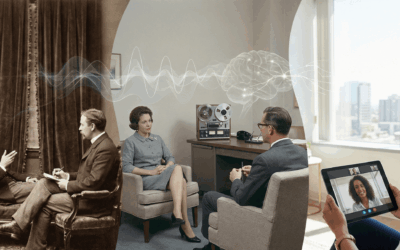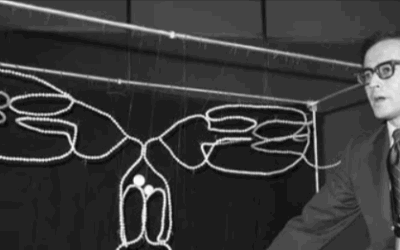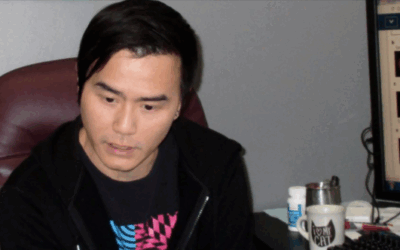Executive Summary: The Business of Healing
The Reality Check: Private practice is not just about clinical skill; it is about entrepreneurship. Success requires mastering the “Invisible Hours” (admin, research) and investing in high-ROI modalities like EMDR and Brainspotting.
Key Strategic Moves:
- Financial: Structure as an S-Corp to save on self-employment taxes; choose locations with lower occupational tax (e.g., Homewood vs. Birmingham).
- Clinical: Move beyond rigid CBT. Embrace flexibility and “Shadow Work” to prevent burnout and deepen patient outcomes.
- Growth: Use “Exit Interviews” to turn failures into data.
8 Essential Tips for Therapists Starting a Private Practice: The Blueprint for Clinical and Financial Success

Starting a private practice is the dream for many clinicians—freedom, higher income, and the ability to practice your way. However, graduate school rarely teaches the business acumen required to sustain it. Many talented therapists burn out not because they lack clinical skills, but because they lack a structural strategy.
Whether you are transitioning from agency work or launching straight out of licensure, these eight insights will help you build a practice that is both profitable and clinically profound.
Read More: 8 Things I Wish I Knew Before I Went Into Private Practice.
1. The “Invisible Hour”: Understand the True Value of Your Time
New private practitioners often make a fatal math error: they assume a $150 session fee equals $150 of income. It doesn’t.
The Clinical Equation: An hour of therapy involves much more than the 50 minutes you spend in the chair. To provide ethical, high-quality care, you must factor in the “Invisible Hour.”
- Case Reviews: You must allocate time to review notes and track progress patterns over months, not just weeks.
- Deep Dive Research: If a client presents with a specific somatic symptom or a complex trauma response, you need paid time to research it.
- Documentation: Writing defensive, high-quality notes protects your license and your client’s care.
Deep Dive: The Therapist’s Ultimate Guide to Clinical Notes.
The Takeaway: When you set your fee, you are not charging for 50 minutes. You are charging for the 2 hours of work required to make those 50 minutes effective.
2. Be Flexible: The Danger of Rigid Modalities
In the early stages of a career, it is tempting to cling to a specific manualized treatment like CBT because it feels safe. However, patients are complex, and rigid adherence to a model often leads to therapeutic rupture.
“Be prepared to switch gears if a patient doesn’t respond well to your initial approach. Adaptability is key to effective treatment.”
If a patient is dissociating, cognitive interventions (top-down) will fail because their prefrontal cortex is offline. You must be able to pivot to Somatic or Bottom-Up approaches.
Read More: Why CBT Isn’t Enough: The Limits of Manualized Therapy.
3. Commit to Continuous Learning (The “Half-Life” of Knowledge)
The field of psychotherapy is evolving rapidly, particularly in the realms of neuroscience and trauma. What was standard practice 10 years ago may be considered outdated today.
A therapist who stops reading is a therapist who stops healing.
How to Build a “Curriculum of the Self”:
- Subscribe to Journals: Stay ahead of the curve on psychopharmacology and neurobiology.
- Curate Your Commute: Use podcasts to learn from masters like Irvin Yalom or Nancy McWilliams while you drive.
- Read Broadly: Don’t just read psychology. Read philosophy, anthropology, and literature to understand the human condition.
Start Here: 10 Books That Every Therapist Should Read.
4. Invest in High-ROI Continuing Education (CEUs)
Not all CEUs are created equal. Free CEUs often cover basic ethics or general knowledge, but they rarely give you new clinical power.
Prioritize expensive, experiential trainings that result in certification. These investments pay for themselves by attracting higher-acuity clients and improving your outcomes.
Top Clinical Certifications to Consider:
- Brainspotting: A powerful tool for accessing the subcortical brain.
- EMDR: The gold standard for processing traumatic memories.
- Internal Family Systems (IFS): Essential for working with parts, fragmentation, and complex trauma.
Bonus: These trainings are fully tax-deductible business expenses.
5. Structure Your Business for Tax Efficiency
Therapists are often scared of the “business side,” but a poor structure can cost you thousands of dollars a year.
- The S-Corp Advantage: Consult with an accountant about taxing your LLC as an S-Corp. This can allow you to pay yourself a “reasonable salary” and take the rest as distributions, saving significantly on self-employment taxes.
- The Business Ecosystem: Open a separate business bank account immediately. Commingling funds pierces the corporate veil and puts your personal assets at risk.
- Tax Shelters: Understand that your own therapy, consultation lunches, and even your office decor can be business expenses.
Resource: Financial & Legal Services for Therapists.
6. Location Strategy: The Geography of Profit
Where you hang your shingle matters—not just for client access, but for your bottom line. Occupational taxes vary wildly by municipality.
The Birmingham Example:
* Birmingham City: Charges 1% of your gross income.
* Homewood/Vestavia: Often have different or lower occupational tax structures.
Researching this upfront can save you 1% of your lifetime earnings. Furthermore, the physical design of your office impacts the “Temenos” (sacred space) of therapy.
Read More: How to Pick a Therapy Chair and Design Your Office.
7. Prioritize Personal Growth (The Instrument is You)
In surgery, the tool is the scalpel. In therapy, the tool is you. If the therapist is unregulated, unhealed, or avoiding their own shadow, the therapy will stall.
You must confront your own unconscious. If you have an unhealed Inner Critic, you may unconsciously judge your clients. If you have unresolved abandonment issues, you may create dependency.
The mandate is clear: You must be in your own therapy. You cannot take a client further than you have gone yourself.
8. Embrace Failure: The Clinical Exit Interview
You will fail. Patients will drop out. You will say the wrong thing.
The difference between a master therapist and a novice is not that the master makes no mistakes, but that the master uses them.
The Protocol: When a client terminates, or even when treatment stalls, conduct an Exit Interview. Ask brave questions:
* “What did I miss?”
* “When did you feel least understood?”
This feedback is the fastest way to grow.
Action Step: How to Conduct a Clinical Exit Interview (Script Included).
Conclusion: Building a Practice that Lasts
Starting a private practice requires a fusion of the heart and the head. You need the clinical heart to hold space for suffering, and the business head to create a sustainable container for that work. By valuing your time, investing in high-level training, and structuring your business wisely, you don’t just build a job—you build a career that sustains you.
Explore Therapist Resources
Taproot Therapy Collective Podcast
Business & Practice Building
The Ultimate Guide to Starting a Private Practice
SEO for Therapists: Ranking on Google
Clinical Development
Understanding Countertransference
The Neuroscience of Trauma: An Integrative Perspective
Burnout Recovery for Clinicians
Bibliography
- Yalom, I. D. (2017). The Gift of Therapy. Harper Perennial.
- Kottler, J. A. (2010). On Being a Therapist. Jossey-Bass.
- Norcross, J. C., & Guy, J. D. (2007). Leaving It at the Office: A Guide to Psychotherapist Self-Care. Guilford Press.
- Barnett, J. E., & Zimmerman, J. (2019). The Ethics of Private Practice. Oxford University Press.

























0 Comments